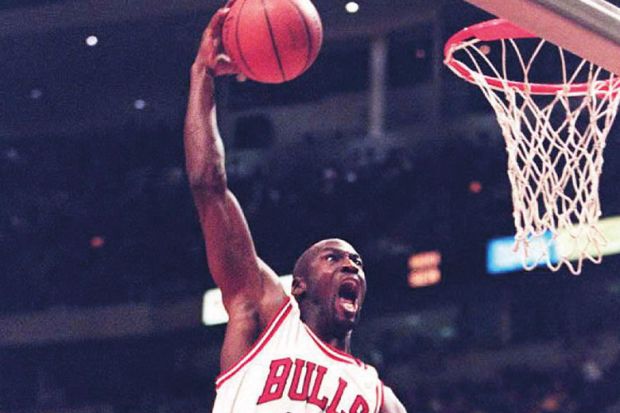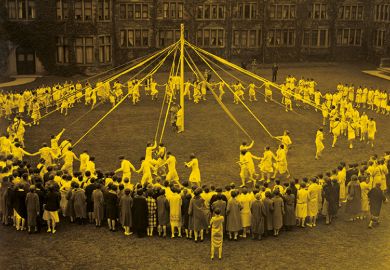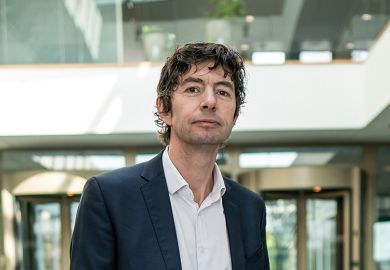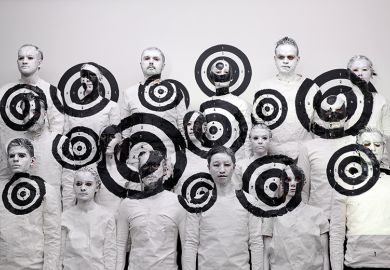In the mid-1990s, Michael Jordan reigned supreme as the world’s most famous sports star.
If, like me, you’ve been watching the Netflix documentary series The Last Dance, it’s plain to see why. The greatest basketball player of all time, Jordan transformed a moribund Chicago Bulls team into the most successful franchise in the sport, winning an unprecedented six NBA championships.
Despite this, Jordan and the Bulls’ general manager, Jerry Krause, did not get on, and barely spoke after the manager was quoted as saying that “players don’t win championships, organisations do”.
Jordan took this as a personal affront, although Krause insisted that he had been misquoted and had actually said that players don’t win championships “alone”, which is true enough.
What has all this got to do with higher education, I hear you ask?
Well, there are parallels in the hypercompetitive natures of professional sport and science.
The relentless and ruthless pursuit of excellence, a tendency to ascribe success to brilliant individuals and overlook the contribution of others, and to elevate stars to celebrity status all resonate.
Fame can be fickle, of course, as a number of scientists thrust into the limelight by the Covid-19 crisis have discovered – and the risks to public trust as a result of that heightened public profile are becoming clear.
Scientists advising the UK government stand accused of suffering from Stockholm syndrome, as questions about the response stack up, while others warn that the politicians’ mantra that they are being guided by “the science” is a pre-emptive defence for the inevitable public inquiry.
In our opinion pages, John Tregoning, reader in respiratory infections at Imperial College London, argues that too much focus on individuals misunderstands the real power of university research as a collective effort. What is more, he writes, it can be toxic: “Much of what is wrong with academia is driven by the narrative that it is a zero-sum game, where only one person can come out on top.”
Shifting the narrative to the collaborative, collegiate nature of research could also “de-risk the process for the individuals, the institutions and the ideas themselves”, he suggests, particularly since “in an increasingly combative media space, any perceived fault can be manipulated to damage a broader theme”.
A case in point is to be found in our news pages, where we report on one of Germany’s best-known virologists, Christian Drosten, who has found himself in the unfamiliar position of having the country’s most-read tabloid newspaper, Bild, attacking his scientific methods.
Elsewhere in our news pages, we report on fears that the financial shock of the pandemic will have a devastating impact on early career researchers, sinking the prospects of a generation.
With many universities implementing hiring freezes and axeing fixed-term contracts, PhD students and early career researchers will already be among the hardest hit.
The potential for that to get a lot worse very quickly was highlighted by Michael Arthur, provost of UCL, who is quoted in a recent article by Tortoise saying that his institution has more than 1,000 staff on funded contracts that end between April and September this year.
“Many of these are post docs who would ordinarily get a new grant or might change departments, institutions or go into industry,” he said.
“What I’m worried about is that these opportunities may no longer be there and the UK’s research infrastructure will be deeply damaged in the long-term as a result.”
The impact of this on the individuals will be a tragedy, but the impact will also be devastating for science and research itself – as is pointed out in our news story by Simon Marginson, professor of higher education at the University of Oxford. “There’s going to be a lost generation of researchers unless we’re very, very sensible and smart about how we handle this,” he warns.
Talk to those on the ground, and it is plain to see the toll this is taking on individuals.
There will be those who say that the attrition rate for PhDs and early career researchers has always been high; that it is not the fault of science that the alternative career paths are currently in disarray; and that the hard reality is that there will always be another cohort coming up behind, providing talent and energy to keep labs running when the financial situation improves.
But there will surely be a compounding effect on output and quality if a generation of scientific talent is lost. And if that is allowed to happen, then academia will also have lost sight of the finely balanced ecosystem in which scientific excellence thrives.
Preserving opportunities for the current cohort of rookies will not be a slam dunk, but as Michael Jordan once said, “talent wins games, but teamwork wins championships”. Which I think is what Jerry Krause was trying to say, too.
POSTSCRIPT:
Print headline: Making hoops and heroes
Register to continue
Why register?
- Registration is free and only takes a moment
- Once registered, you can read 3 articles a month
- Sign up for our newsletter
Subscribe
Or subscribe for unlimited access to:
- Unlimited access to news, views, insights & reviews
- Digital editions
- Digital access to THE’s university and college rankings analysis
Already registered or a current subscriber?



